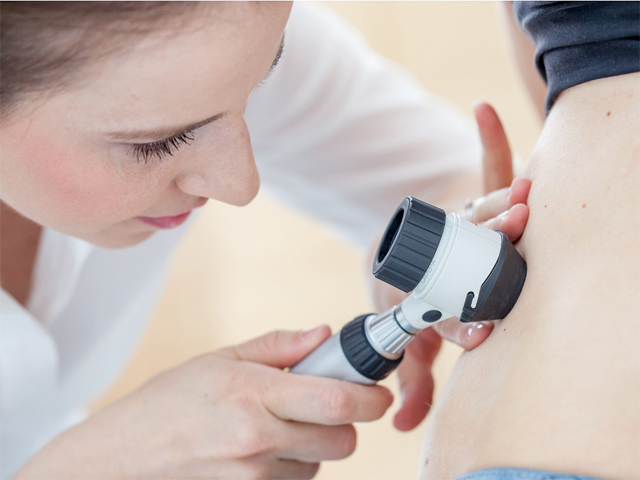Dr Antoinette Ciconte Rosacea Awareness Month Interview

Could Coffee Actually Be Good For Your Skin?
A very large recent study including data from more than 80,000 women that investigated the relationship between caffeine and rosacea suggests coffee is not necessarily a risk factor for rosacea. In fact, increased caffeine is now thought to lower the incidence of rosacea. Importantly, the research findings do not support limiting your caffeine intake as a way to prevent rosacea, although further studies are needed. In addition to its many other potential health benefits, scientists also now believe coffee could be good for your skin.
Interview with Dr Antoinette Ciconte, MBBS, BSc, FACD. Fellow of the Australasian College of Dermatologists, Melbourne
Dr Antoinette Ciconte is a specialist dermatologist and a Fellow of the Australasian College of Dermatologists. Dr Ciconte completed her medical degree with Honours at Monash University and has since worked in numerous teaching hospitals in Melbourne. Dr Ciconte has also undertaken further training in cosmetic dermatology in New York, USA.
Dr Ciconte has over 10 years of experience in cosmetic and laser dermatology and has practised extensively in this field, specialising in the use of laser treatments for sun damage, freckles, ageing, rosacea and vascular skin conditions.
Dr Ciconte has had considerable experience in the use of dermal fillers, anti-wrinkle injections, sclerotherapy, and in the treatment of axillary hyperhidrosis and hyperhidrosis of other body regions.
Dr Ciconte has worked as a consultant dermatologist at Royal Melbourne Hospital and the prestigious St George's Hospital in London. She is currently a consultant dermatologist at Box Hill Hospital, Melbourne.
Dr Ciconte has a special interest in Rosacea, acne and acne scarring.
Question: What is Rosacea?
Dr Antoinette Ciconte: Rosacea is a common chronic skin condition that causes frequent blushing, redness, flushing and acne-like pumps on the cheek, nose, chin or forehead.A common feature of rosacea is enlarged or broken visible blood vessels on the face.
Question: What did the study into the relationship between caffeine and rosacea find?
Dr Antoinette Ciconte: A recent international study involving more than 80,000 women may suggest the caffeine in coffee could help lower your risk of rosacea.
Hot food and beverages have been known to flare rosacea by causing the blood vessels to expand, which increases blood flow to the surface of the skin and contributes to facial flushing. People with rosacea are often told to avoid hot and spicy food and drinks, alcohol and strenuous exercise which trigger the condition. But findings from this new study may not support limiting your caffeine intake to prevent rosacea.
Question: How does caffeine lower the incidence of rosacea?
Dr Antoinette Ciconte: Although the exact reason for coffee's claimed ability to reduce the risk of rosacea is not completely understood, caffeine is known to limit blood vessel expansion and can help to calm down the immune system. By suppressing an over-active immune system and limiting the amount of blood that reaches the skin's surface, caffeine can reduce the redness associated with rosacea. More studies are needed to explain exactly how caffeine could lower the risk of the different types of rosacea.
![]() Question: How many cups of coffee a day can lower the incidence of rosacea?
Question: How many cups of coffee a day can lower the incidence of rosacea?
Dr Antoinette Ciconte: This study reveals having up to four cups of coffee a day can help to reduce your risk of developing rosacea. It's important to remember that not everyone is able to drink that much coffee a day, and that the heat from coffee can be a trigger for Rosacea flares.
Question: What treatment options are there for rosacea?
Dr Antoinette Ciconte: There are a number of treatment options for rosacea that your dermatologist may suggest you consider:
1. Avoid known rosacea triggers, such as aggravating food and drinks.
2. Keep your face cool and protected from direct sunlight by sporting a hat and sunscreen
3. Stay away from skin products that cause a tingling or burning sensation when applied
4. Avoid using steroid creams on your face which has been proven to flare rosacea
5. Use oil-free skin products.
6. Consider using a topical cream or oral tablets to reduce inflammation.
7. Explore vascular laser treatment, which selectively targets and destroys unwanted or abnormal blood vessels in the skin with minimal damage to surrounding normal skin structures.
Question: What do you hope to achieve during Rosacea Awareness Month?
Dr Antoinette Ciconte: Rosacea affects around 5.5 per cent of the world's population – that's 415 million people across the globe! Although it's is a common skin condition, rosacea has no cure. The condition can only be managed. If left untreated, rosacea can cause embarrassment or lack of confidence, and can impact your quality of life. For Rosacea Awareness Month, I'd like more Australians to understand the importance of visiting a dermatologist who are specialists in the treatment of skin disease and who undertake a minimum of four additional years of training to determine how best to manage skin conditions, including rosacea.
Interview by Brooke Hunter
MORE



